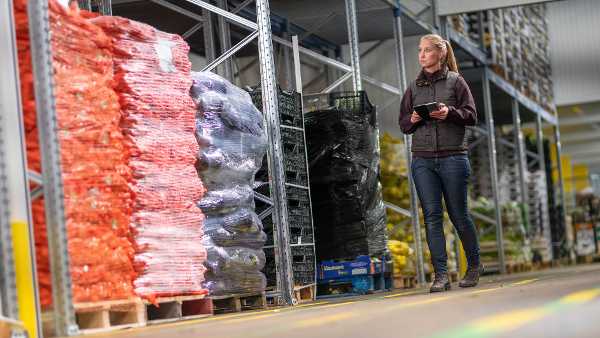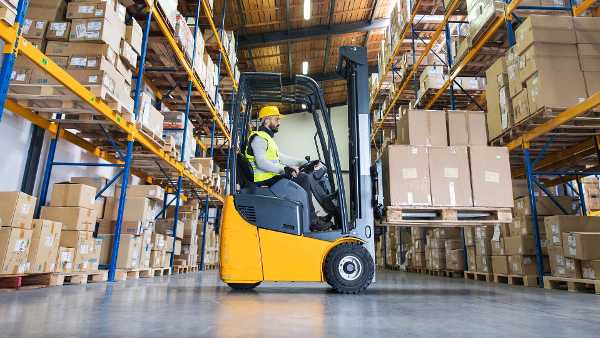Tips for smarter, cheaper imports
- Marco van Hagen
- Background
- Edited 21 January 2026
- 5 min
- Managing and growing
- International
Importing goods costs time and money. You have to read up on trade agreements, VAT rules, and customs regulations. And sometimes you pay import duties and clearance costs for your imported goods at the border. There are various clever ways to lower the costs of importing products.
Take advantage of trade agreements and special customs regulations. import goods from EU or non-EU countries and postpone payment of VAT. Or limit your stock as a drop shipper. The tips in this article will help you make smart decisions to save time and money.
1. Take advantage of trade agreements
Do you import goods from countries with which the EU has a trade agreement? You may qualify for import duty relief. But only if the goods are of preferential origin from the treaty country. This means that the goods have to have been made in the treaty country and meet certain requirements. For a list of requirements for products and countries, use the European Commission’s Access2Markets or use the Rules of Origin Self-Assessment tool ().
With preferential documents of origin from the treaty country, you demonstrate the preferential origin of your products and qualify for import duty relief. Examples of documents of origin are an invoice declaration or EUR.1 certificate.
Example
If you import ski suits from the United States (US), you pay 12% import duty. If you import ski suits from Vietnam, you pay 0% import duty. This is because there is a trade agreement between the EU and Vietnam. The condition is that the ski suits are of Vietnamese preferential origin. Import duty rates differ between products and are linked to the product’s HS code, also known as its commodity code.
2. Get to understand customs regulations
If you import products from non-EU countries, there are various special customs regulations. These regulations can mean you pay less or no import duties.
Inward processing
The inward (actieve veredeling) scheme lets you temporarily import raw materials from a non-EU country. You process these raw materials into finished or semi-finished products. You then export the processed product back to a non-EU country. Then you do not pay import duties and other import taxes, such as VAT on import, on the imported raw materials. You can also repair or restore goods from non-EU countries with this scheme.
Example
You are a candle manufacturer and supply a client in America. You import paraffin granules from China as raw material. With the Inward Processing Permit, you can import this paraffin without having to pay import duties and import VAT. After production, you export the candles to America as a finished product.
Outward processing
Outward (passieve veredeling) is the opposite of inward processing. It involves temporarily exporting goods to a non-EU country. The goods are processed there, for example, repaired or turned into a finished product. Then you reimport these products into the EU without having to pay full import duties. You only have to pay import duties on the added value of the processing abroad.
Example
You temporarily export fabrics from the EU to a garment factory in India. There your fabrics are turned into clothes. You then re-import the clothes into the EU. You do not have to pay import duties on the value of the fabrics you previously temporarily exported.
Customs warehouse
You purchase non-EU goods and supply them to non-EU customers. Storing these goods in a customs may be an interesting option, as you will not have to import the goods and will not have to pay any import duties or other import taxes such as VAT. There are public and private customs warehouses. Many carriers have a customs warehouse, but this can also be a space within your own business premises.
Example
You are a supplier of water sports equipment. You have these goods produced under your own brand name in China and you sell them worldwide. A big part of your turnover comes from exporting your products to non-EU countries. Because you store your water sports equipment in a customs warehouse, you do not have to pay import duties or import VAT. This helps to keep your prices low. Your customers will also benefit, because they will not have to pay import duties twice: once for importing the equipment into the EU and again for importing it into their own country.
These are just a few of the special regulations that exist for goods. To make use of customs regulations, you have to apply for a permit from Dutch .
Want advice?
Do you want to discuss your import plans with an adviser? Call the KVK Advice Team on 085 585 22 22.
3. Take advantage of doing business within the EU
Suppliers can be found all over the world. It is important to carefully consider everything they have to offer. Spread your risks and avoid becoming dependent on a single supplier. It is also important to consider the country you are importing goods from. Do you prefer doing business with a supplier in an EU member state or in a non-EU country? Importing from an EU country has several advantages.
- When you import goods from an EU member state, you do not have to pay import duties. If you import goods from a non-EU country, you will usually have to pay import duties and declare the imported goods to customs.
- Do you want to import branded products outside official distribution channels? This is called parallel . Parallel imports are allowed if you import branded products from an EU country. But importing branded products from non-EU countries is prohibited unless you have permission from the trademark owner. Please note that you must never import and trade counterfeit goods.
- The EU has laws and regulations, for example for product . All EU countries follow these rules. Are you importing a product from another EU country? Then the product usually complies with European product requirements. Countries outside the EU often have different requirements for products. Make sure these products comply with European requirements. As an importer, you are legally obliged to do so.
4. Postpone paying VAT
If you regularly import products from non-EU countries, you can postpone paying import VAT to a later date with an article 23 issued by the Netherlands Tax Administration. Rather than paying it when you import goods, you include it in your VAT return and deduct it as input tax. This lets you avoid advancing the VAT, which will benefit your liquidity.
5. What is dropshipping?
As a dropshipper, you do not keep any products in stock yourself. You order goods from your supplier and they deliver them straight to your customer. So, you do not have any stock costs and excess inventory. However there are rules for you must follow. Many online use dropshipping. Important: VAT can be an issue with online sales to consumers.
You can also supply businesses with dropshipping, but you run the risk of your customer finding out who you order your products from, as their details will be on the documents that come with the shipment.
6. Avoid problems with customs
If you import goods from a non-EU country, filing an import declaration requires skill. You need access to the digital system used by customs, as well as in-depth knowledge of customs processes and procedures. The digital system is known as the Customs Declarations Management (Douaneaangiften Management Systeem, DMS). Get help from specialists such as customs brokers and forwarders.
Besides filing customs declarations, freight forwarders also specialise in transporting goods (or having them transported) and everything that this involves.
7. Avoid being scammed
It is becoming more common for business partners to only negotiate over a video conferencing tool. If you never physically meet the person you are in business with, it can be more difficult to check your business partner. Some suppliers are reliable, but KVK gets many complaints about importers who have been scammed by fake suppliers. Be extra vigilant when the economy takes a turn for the worse. If you prepay for your order, you run the risk that your products may not be delivered. Discuss other forms of with your business partner.


